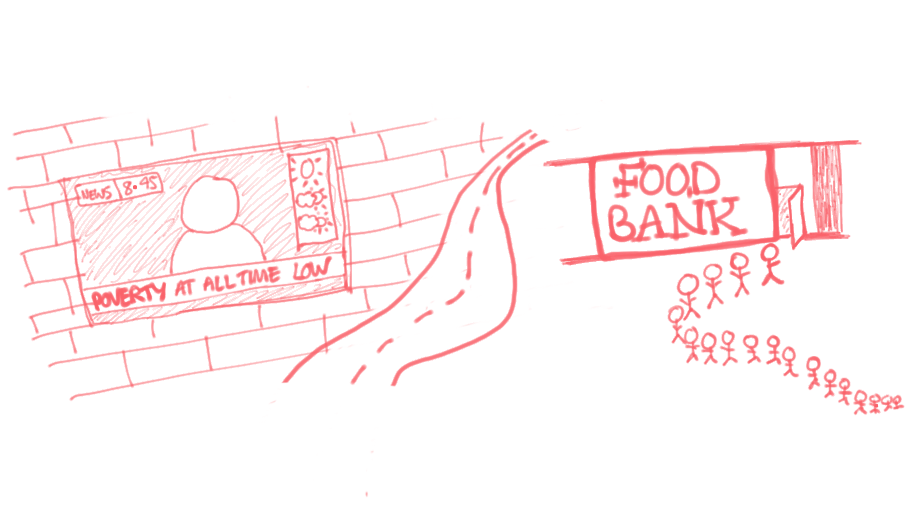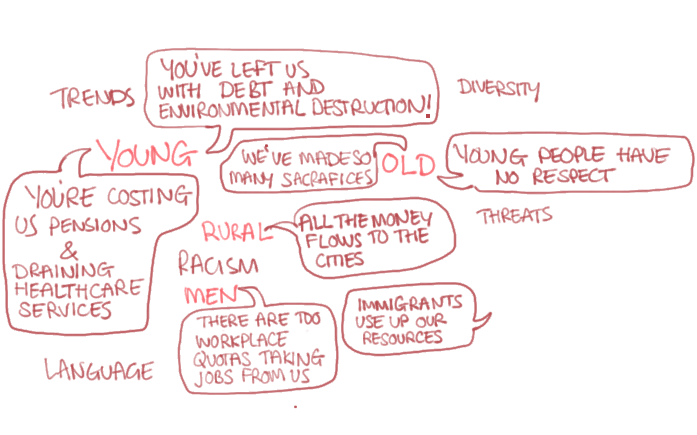This post explores why people are dissatisfied by our societies when the world is better than its ever been. Is this dissatisfaction justified?
Humans development has never been as good as it is today. Across the world there is more education, better health provisions. IF your great great grandparent were to time travel to todays time they probably be amazed! Our standard of life are so high. Thinks like employment rights, minimum wage, public healthcare, free school meals for children from lower income families would have been pipe dreams in their times. But still there is so much anger and frustration from the people in our societies at how things are run.

So why is there so much dissatisfaction at life?
I’ve taken most of the inspiration from this post from a book by Minouche Shafik, Director of the London School of Economics, former Deputy governor of the bank of England and a lot of other very influential jobs. Minouche suggests that a lot of the anger and anxiety in our society comes from people’s personal insecurities and a feeling that they have no power over shaping their future.
People feel hard done by because they don’t feel like they have the opportunities they should deserve. They expect more from their societies and feel growing resentment at any of the contributions they make to society. Groups within societies feel disjointed. The feeling of un-fair distribution can quickly fuel an ‘us’ and ‘them’ mentality. Group mentality often strengthens the individual opinions of those within the group and so, especially through social media, the ‘us’ and ‘them’ divide can turn from frustration at ones own circumstance into anger pretty quickly.
Tension from dissatisfaction in societies

There is tension between rural and urban areas; people from the country often believe a high proportion of resources flow into the cities. There is often anger towards immigrants, for changing the makeup of a society or for being eligible for benefits from a government to which they have not contributed. Men can feel threatened by a new workforce of women. Workers can feel threatened by diversity quotas that may put them at a disadvantage. Young people are frustrated at the legacy left to them by old people in the form of environmental destruction, high levels of government debt while they still use increasing amounts of public pensions and healthcare services.
How would people feel more valued and listened to? How would they feel part of society, not fighting for their needs within society. Are societies too big for people to feel like they can be heard?
How does the state give and take?
It’s not about taking from ‘the rich’ and giving to the ‘the poor’. Its also not taking from rural areas and giving to cities, or taking from the young and giving to the old. The state evens out our resources and the amount we use over our lifetimes and creates an insurance or safety net for if things go badly (e.g. a big accident, economic crash, or global pandemic). But this is hard to see so it makes sense that people feel their interest are not listened to; or that they’re not receiving the same benefits as others.
There ‘s the economic argument of the benefit of society, and then there is the way people feel about it.
The transactional/economic benefit that a society offers is clear. Running a common state is cheaper than each person running their ‘own state’. This is because pooled resources are the more efficient. That is the principle of how Insurance companies work; they insure everyone knowing that only some people will need payouts- they don’t hold me money need to pay out to everyone at once. Only this applied to education and care in old age, healthcare, job security and lots of other things.
But there is also a question of how people feel: do people feel listened to? Any organisation running a big group of people will make decisions in the best interest of the majority. But a majority could be made up of only 30% of the people in that group. Although the group works for that 30% majority, most people will feel unheard and unsatisfied.
Is the dissatisfaction in societies fair?
The state is inherently designed to distribute resources amongst the people, and along their lifespans; this is how it flourishes. And this means everyone skilled, in employment, healthy, and with a decent living standard, paying their taxes and interacting with the economy to keep it in flow.
Most people, when they think of the state not being fair think of relatively small-scale things. ‘Why is my tax money being spent on welfare for people who are too lazy to work?!’.
Actually, FAR MORE money is sucked out of our societies by our financial systems. These financial systems systematically take money away from the majority of people. The argument goes that they benefit the state by improving the economy (though not as much as they extract from it). So the point is, that often the scale of injustice is mis-represented in the media.
However, the frustration that people feel is completely justified. At the moment there is a lot of anger and frustration and there are many parts of society that need serious fixing. The coming posts on these topics will explore some of the interactions we have with our states and suggest how they can be better set up to succeed.
As ever thanks for being here and I hope you enjoyed this post on our society.
You may also enjoy these posts:
